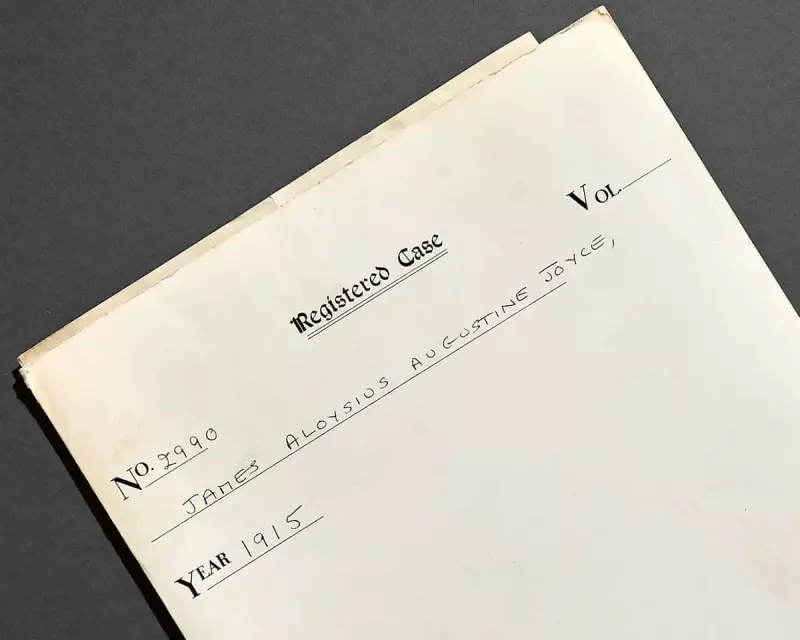
Literary Legends' Financial Struggles Exposed in Historic Archives
Previously unseen documents revealing the financial hardships faced by some of Britain's most celebrated writers have emerged from the archives of the Royal Literary Fund. The charity's case files, containing personal letters and applications from literary giants including James Joyce, Sylvia Plath and Dylan Thomas, show authors at their most vulnerable moments.
The treasure trove of documents includes everything from James Joyce's complaint about receiving 'nothing in the way of royalties' to Dylan Thomas's detailed grocery list featuring tobacco, Swiss roll, Irish whiskey, Guinness and monkey nuts. Many of these papers have never been seen by the public before and were exclusively shown to the Guardian.
Famous Writers' Desperate Pleas for Support
The archives paint a poignant picture of literary greats struggling to make ends meet. James Joyce, in his 1915 application, revealed that sales of his books were 'below the required number' for royalty payments. At the time, he had published Chamber Music and Dubliners and was working on Ulysses.
Edith Nesbit, author of The Railway Children, wrote in August 1914 about how the shock of her husband's death had completely overwhelmed her, leaving her unable to write the 'poetry romance and fairy tales' that had been her main source of income.
Doris Lessing, the only British woman to win the Nobel Prize in literature, described in a 1955 letter her precarious financial situation after moving from Southern Rhodesia (now Zimbabwe) to Britain with just £20 following the end of her marriage. Despite the success of her debut novel The Grass Is Singing, she wrote that she had been 'living on my pen ever since, though very precariously'.
The Conflict Between Art and Commerce
The documents highlight the eternal struggle between artistic integrity and financial necessity. Ezra Pound, in his letter supporting Joyce's application, noted that the author had 'lived for 10 years in obscurity and poverty, that he might perfect his writing and be uninfluenced by commercial demands'.
Lessing similarly expressed her dilemma when confronted with the opportunity to write commercial television scripts, acknowledging that while she might 'earn a lot of money', she wouldn't be doing any serious work.
Dylan Thomas's desperate situation became particularly acute when his wife became pregnant. In his August 1938 application, the Welsh poet wrote: 'I have been trying to live by my writing for five years, and have lived in poverty nearly all that time... But now my wife is going to have a baby, and our position is desparate [sic]'.
Contemporary Relevance and Ongoing Support
The challenges facing writers today remain strikingly similar. According to the Authors' Licensing and Collecting Society, professional authors in the UK now earn a median income of just £7,000. The RLF has seen a dramatic 400% increase in applications for hardship grants between 2023 and 2024.
Edward Kemp, who now runs the charity after serving as director of the Royal Academy of Dramatic Art, observes that the situation for mid-list fiction writers has deteriorated significantly. 'The kinds of deal you get with a publisher as a mid-list fiction writer has gone down, down, down, down, down', he says, noting that big publishers now concentrate resources on 'paying large amounts of money to a small number of writers'.
The RLF continues to support contemporary writers including Ali Smith, Monique Roffey, Anna Burns and Hanif Kureishi, demonstrating that financial vulnerability remains an enduring reality for writers across generations.
The archives are stored between the British Library, where they are available to view, and at the RLF offices behind Fleet Street, where cataloguing of newly discovered case files continues to reveal more about the hidden lives of Britain's literary heritage.





